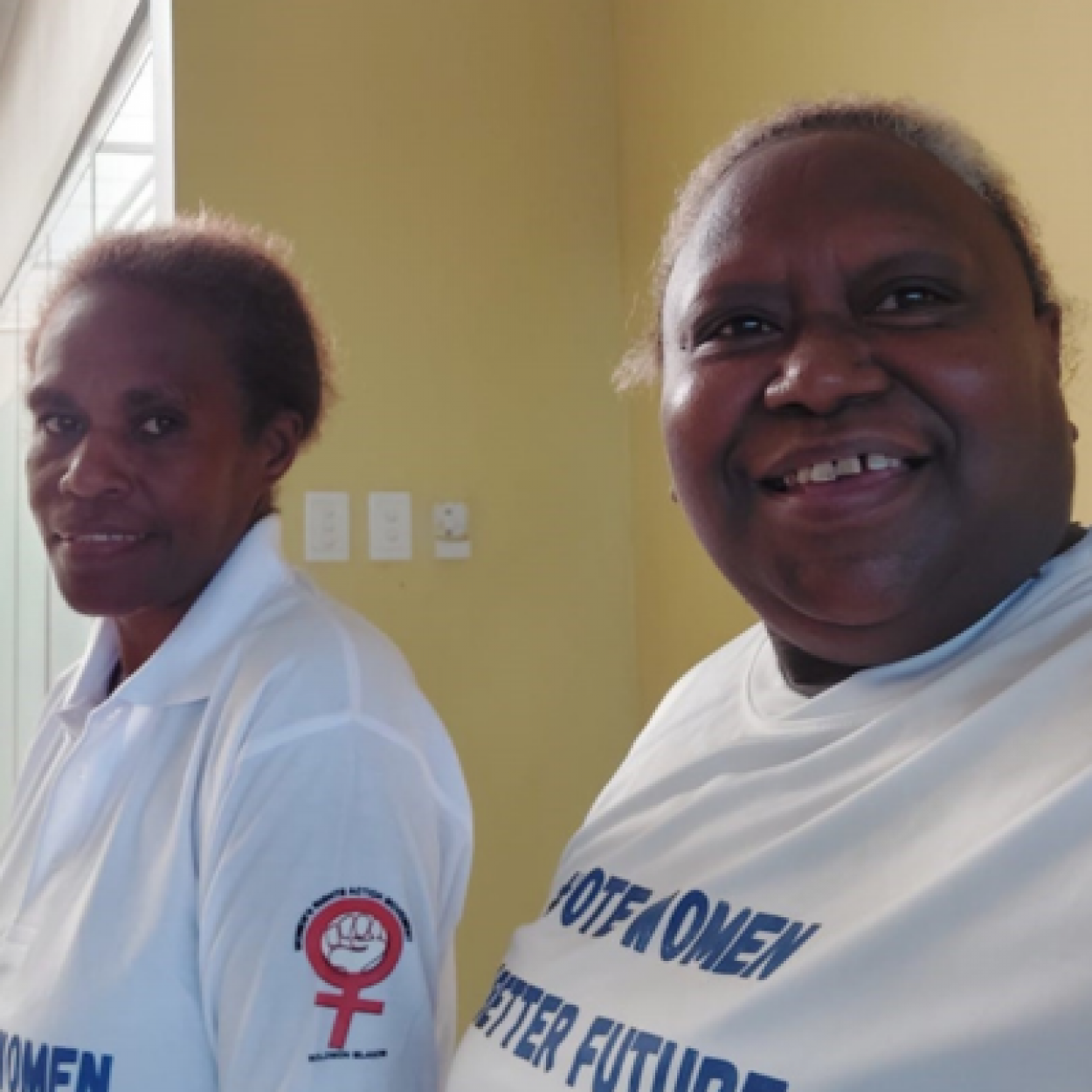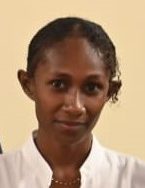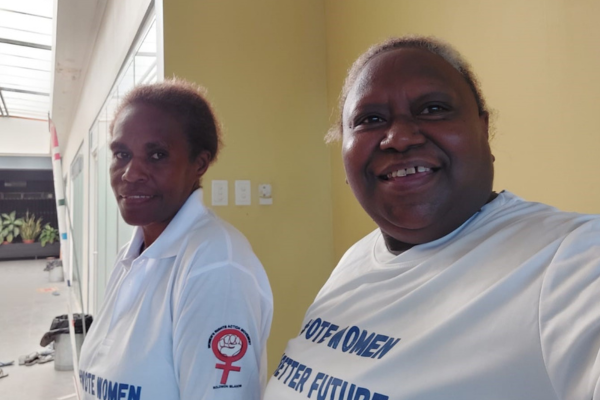
Major milestone for women’s rights in Solomon Islands
When Solomon Islands went to the polls this month, only 6% of candidates were women. Read how IWDA partner Women’s Rights Action Movement is working tirelessly to change this and boost women’s representation in national leadership.
Women’s rights campaigners in Solomon Islands are celebrating a landmark win after the country’s leaders approved the inclusion of Temporary Special Measures in a bill amendment to improve women’s political representation in the country.
The endorsement is considered a major milestone for gender equality in Solomon Islands, a country that has one of the world’s lowest rates of women’s political participation and representation. Since independence in 1978, only six women have been elected to the National Parliament, and currently, only four out of 172 members at the provincial level are women.

Women’s Rights Action Movement’s Bezel Aonima said campaigners had been reinvigorated by the achievement after six long years of advocacy.
“Getting this through Cabinet is really quite a success story for us,” she said. “For us – young women – it’s empowering. We are willing to go the whole mile to get this through Parliament.”
The proposed amendment to the Provincial Government Amendment Bill (2018) is due to be voted on later this year, following elections in April which saw both the National and Provincial governments go to the polls.
Bezel said WRAM’s tireless advocacy work on this issue, supported by IWDA, follows extensive campaigning from the Solomon Islands National Council for Women dating back to 2009. The campaign began as a call for ten elected seats for women in the National Parliament.
“Then in 2017, the Solomon Islands Prime Minister tabled a white paper, but unfortunately again, this was not passed,” Bezel said. “It did lead to a discussion though about why TSMs are a good start for getting women into Parliament.”
These discussions spread to the provinces, but technical and legal issues held up progress. That’s when WRAM was engaged to provide technical advice.
Over the ensuing six years, numerous setbacks have been navigated, Bezel said. Each time WRAM and the broader women’s rights movement were required to re-strategise. During this period WRAM worked with IWDA as a long-standing partner to secure new funding from the Australian Department of Foreign Affairs and Trade to ensure the campaign could continue.
A key part of the campaign was persuading powerful male leaders of the importance of women’s political representation – not always an easy message to convey.
“Most politicians we spoke with said, we are representing women in the Parliament, we’re already doing this on behalf of women,” Bezel said. “But much of women’s needs are not reflected in policy. We needed to get them to understand that it’s about women sharing and articulating their experiences and contributing to change. This is so important.”
“Most women in the communities are saying they are not able to access information about government policy. It’s very sad. Women have a lack of information about the things that affect them – health services, family planning, all spheres of society really. They are saying, we’re suffering down here.”
With the current age of consent in Solomon Islands being 15 years, Bezel said most women marry early, leaving them vulnerable. She said other key protections that need addressing include child custody and matrimonial property rights.
A 2019 research report conducted by WRAM and IWDA found that while there was significant support for women in politics, from both men and women, these views rarely translated into practical support at the polls. Only one in five respondents said they had ever voted for a woman.
The study also found ‘culture’, religious norms, lack of education and the rise of money politics were all persistent barriers to women’s participation in politics, and that women candidates were judged more harshly than their male counterparts.
Bezel said Temporary Special Measures were an ideal way to increase the number of women in politics as they do not pose a threat to the men currently holding seats.
“Our key message was clear – having women in decision-making positions is not about taking up your space,” she said. “It’s about sharing and making decisions together. It’s not about taking away your seats, because these are new seats.”
“We also tapped into traditional values, because women are very important in our traditional values.”
Bezel said extensive lobbying through 1-to-1 meetings with key politicians was aimed at fundamentally changing perceptions. This included referring to anti-discrimination laws in policies and the Constitution. It was also about ensuring stakeholders understood that women’s representation benefits everyone.
“This is a development issue for the country as a whole,” Bezel said.
In 2022-24, WRAM, along with the Ministry of Women, Youth, Children and Family Affairs and the Solomon Islands National Council of Women ran several community consultations in each of the country’s provinces, asking respondents whether TSMs were a good way to facilitate greater women’s representation.
The result was widespread approval from the community and official support from the nine Provincial Assemblies. Gaining community support was a clear advocacy goal, as it would prove key to securing official endorsements at all levels.
“These consultations involved 30,000 people and we’ve been told it’s one of the largest consultations to have taken place,” Bezel said.
The next step in the TSM campaign is working towards a vote in the new Parliament, following the April elections. Bezel said the advocacy work will continue in earnest.
“The outcome of TSMs will depend on the outcome of the elections,’ she said. ‘If we have new people coming into Parliament, we will have to re-strategise, to ensure these new people understand how important TSMs are.”
As a young graduate, Bezel said the achievements made to date fill her with hope. They also have taught her a lot about how successful campaigning requires creativity, agility and of course, tenacity.
“For me, as a new graduate, what I was taught at law school about following process was totally different to what I’ve experienced on the job,” she said. “When you’re dealing with women’s rights, you have to re-strategise again and again.”


